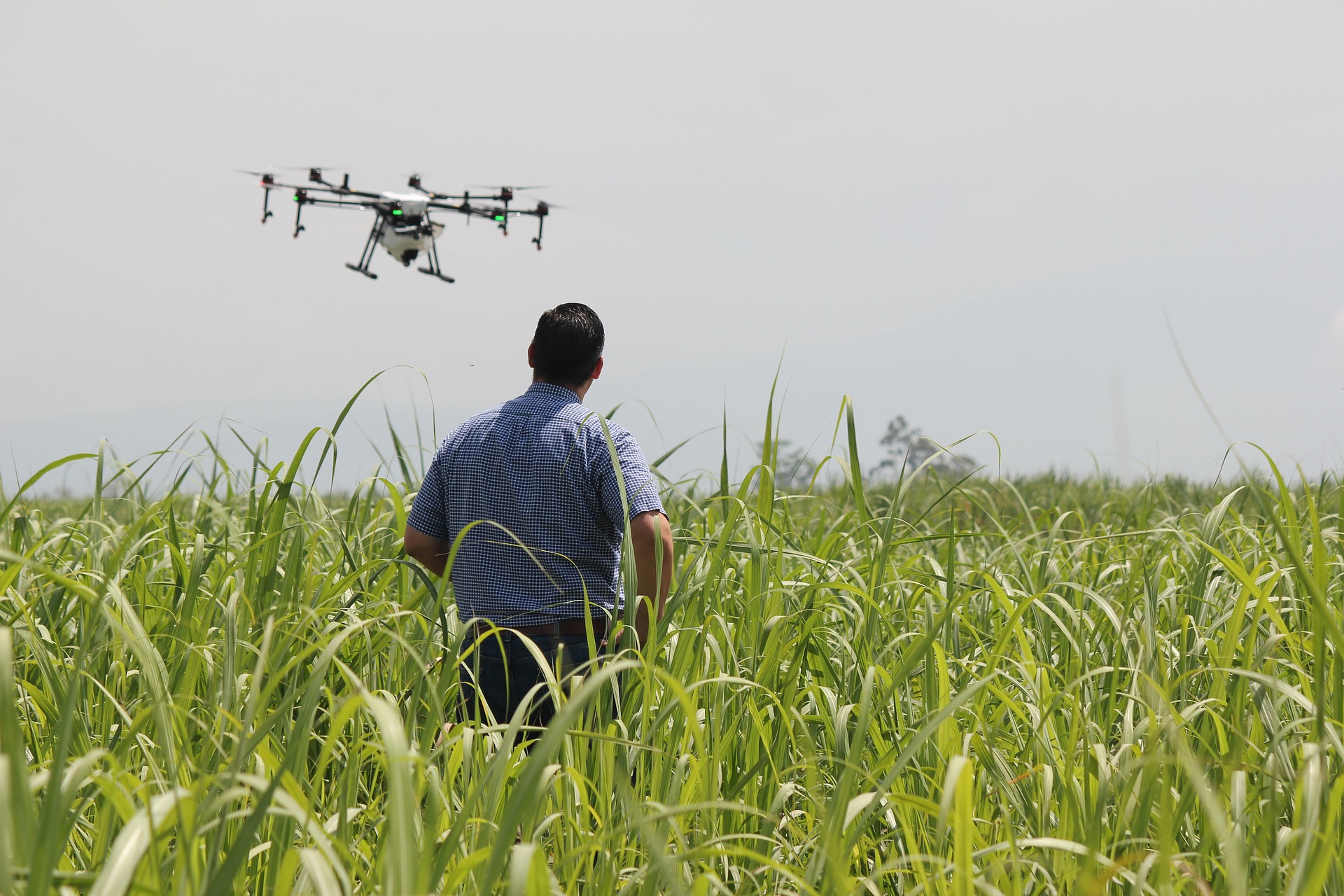Agricultural Industry in China

Agricultural Industry in China
China has a long history of farming and a tradition of intensive cultivation. Its rural population is reported to be over 300 million strong. China’s modern agricultural industry was under strict local and national government control until the late 1980’s when the reform and opening policies led to a more market-based approach to the agricultural industry in China. Particularly, in recent years the government has abided by giving priority to the work on agriculture, rural areas and farmers.
China has succeeded in producing one fourth of world’s grain and feeding one fifth of world’s population with less than 10 percent of the world’s arable land. This is not only a great achievement in the pursuit of food and nutrition security in China itself, but also globally. Currently, China ranks first in the world in terms of the production of cereals, cotton, fruits, vegetables, meat, poultry, eggs and fish.
Import and Export Trends in Agricultural Industry in China
Currently, the agricultural industry in China is responsible for producing 18% of the world’s cereal grains, 29% of the worlds meat, and 50% of the world’s vegetables. Overal, the country is responsible for creating roughly 20% of the world’s food, making it the largest agricultural economy globally.
Due to various setbacks and trends, China’s production cycles often vary based on current events and trends. For example, China used to be the top pork producing nation. However, due to 2019’s outbreak of African Swine Fever, the pork production has faltered. This has led to a high demand for quality pork imports in China. The dynamic industry can often face seasonal changes based on taste trends and crises such as the African Swine Flu.
Recent Developments in the Agricultural Industry in China
Agriculture remained a core part of the 12th and 13th Five-Year Plans of the Chinese government. Aside from focussing on quotas for grain and other staples, the five-year plans point to trends that will benefit the farming class in the future. For example, rural infrastructure development was a core point of the 12th Five-Year plan. This led to increased access to many of China’s richest farmlands. In turn this increased non-farm labor activity and the local incomes of rural populations. Something which was another focus point of the five-year plan.
Furthermore, the five-year plans have stated the need to integrate environmental concerns into the agricultural industry in China. Through regulating the types of fertilizers and pesticides that can be used on crops, China hopes to see more successful harvests while also preserving the land that supports their robust agricultural industry. The focus on green initiatives continues nationally, thus it is likely that similar campaigns can be seen in the upcoming 14th Five-Year plan as well.
Another key point to note is the focus on creating large, industrialized farms to consolidate the labor of the farming populations. In the 12th Five-Year plan, it was noted that over 130 farming households were poised to benefit from industrialized organization in agriculture. Through the robust development of farmers’ cooperatives, large scale farms could replace the decentralized, smaller farm system and allow for more significant growth.
Private business has also started promoting agricultural innovation and “AgriTech” solutions to advance the agricultural industry in China. In 2018, Alibaba launched a program called “ET Agricultural Brain” that leverages big data to help farmers plan their planting methods effectively and maximize crop yields. Alibaba’s product helps to share information about new technologies and methods that have helped produce a high-yield. Furthermore, it encourages innovation amongst the groups.
Innovation and Automation
In 2018, the Chinese government launched a program that is aimed at testing the innovative capabilities of the agricultural industry. During this pilot program, the government and a few private companies will test the efficiency of automated agriculture technology. For example, tests will be performed with AI-driven farming technology, automated heavy machinery, and big data driven pesticide treatment plans. The aim of the pilot is that farming can become more sustainable and profitable for the populations that rely on farming for their income through trusting automized systems..
In 2019, this program was seen operating in full swing. China’s state media, Xinhua News, reported that in China’s northern Heilongjiang province drones could be seen flying above the farm fields while driverless machines were planting rows of seedlings below. According to the official report, one person can manage the entire farming process which previously required many experienced workers. Many young people opt to leave the countryside in pursuit of industrial or service jobs in bigger cities, therefore automation could solve the predicted labor shortage and keep agricultural yields high.
Regional Focus: Sichuan Province
One cannot discuss the agricultural capabilities of China without also discussing Sichuan province. The Sichuan Basin surrounding the Yangtze River is called the “breadbasket” of China due to its production of wheat, grains, and rice. This region has been home to agricultural development and innovation for over 2000 years.
The majority of the 81 million residents of Sichuan province earn their income through involvement in the agriculture and cultivation industries. Sichuan’s ability to grow a diversity of crops has made it a modern agricultural hub. The province currently exports most of what is produced.
The Sichuan province is located in China’s mountainous Southwest region and borders Qinghai, Yunnan, Tibet, and Chongqing regions of China. This area is marked by diversity and modern investment in continued development. Sichuan province’s capital city of Chengdu was elevated to a first-tier city in 2019 due to its significant development and economic growth.
Negative List: Restrictions on Foreign Investment in Agriculture
The 2019 Negatives List released by the Chinese government continued placing restrictions on foreign investment into China’s agriculture industry. While there are stills ways in which foreign companies can be successful in supporting the agriculture industry, it is important to note these restrictions to foreign investment.
- If a foreign company is involved in the research, selection, or seed production of new varieties of grains, a Chinese company must have a controlling stake in the process.
- Foreign companies are prohibited to invest in the development, breeding, cultivation, and/or production of reproduction material in the sub-industries of animal husbandry or fishery management.
- It is prohibited for foreign companies to invest in the selection and breeding of genetically modified crops, livestock, and seeds.
- It is prohibited for foreign companies to invest in fisheries present in inland China.
For more information about the Negatives List, please refer to this article.
Exporting Agricultural Products to China
Although China is the top food producer, China still relies on imports to feed both its livestock and growing population. Food products, such as meat and produce, often face regulations based on their country of origin and the bilateral trade agreement that the country of origin has with China. 1421 has many years of experience in navigating the agricultural industry’s import regulations in China.
Agricultural technology, such as tractors, irrigation technology, and more, are also still imported in order to keep up with China’s quickly modernizing industry. If your company would like to import agricultural technology to China, it is important to create a strategy in order to protect your company’s intellectual property and tap into the relevant local distribution channels that will allow you to be successful. Regardless of whether this means opening up a Wholly Foreign Owned Enterprise (WFOE) in China or finding a trusted local partner, 1421 is happy to answer inquiries about your goals.
Businesses interested in entering Agricultural industry in China China’s should pay attention to the trends and regulations of the sub sector they are interested in. Regulations vary significantly based on the country of origin and type of product your company sells. For companies interested in exporting or opening a business in China, 1421 has a wealth of knowledge about the procedures for assessing your capability to do business in China. If you want more information about what is required to be cleared to import your product to China or have any questions, feel free to contact us.
Related posts

